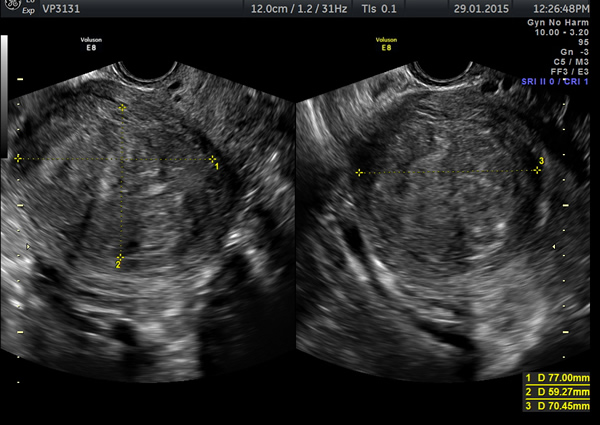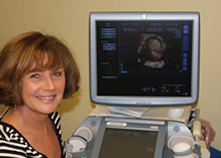Fibroids
Fibroids are tumours that grow in the uterus (womb). They are mostly benign, which means they are not cancerous, and are made up of muscle fibre. Fibroids can be as small as a pea and can grow as large as a melon. It is estimated that 20-50% of women have, or will have, fibroids at some time in their lives. They are rare in women under the age of 20, most common in women in their 30s and 40s, and tend to shrink after the menopause.
It is estimated that 75% of women with fibroids do not have symptoms, therefore many women don’t know they have fibroids. Whether or not you have symptoms depends on the size of the fibroids and where they are in your womb. This also affects the types of symptoms you are likely to have. For example, a small fibroid in the wall of your womb probably won’t cause any problems, whereas a large fibroid growing outward from your womb might press against your bladder, causing bladder problems.
The most common symptom of fibroids is heavy menstrual bleeding. Other symptoms include abdominal pain or pressure, changes in bladder and bowel patterns and, in some cases, infertility.


